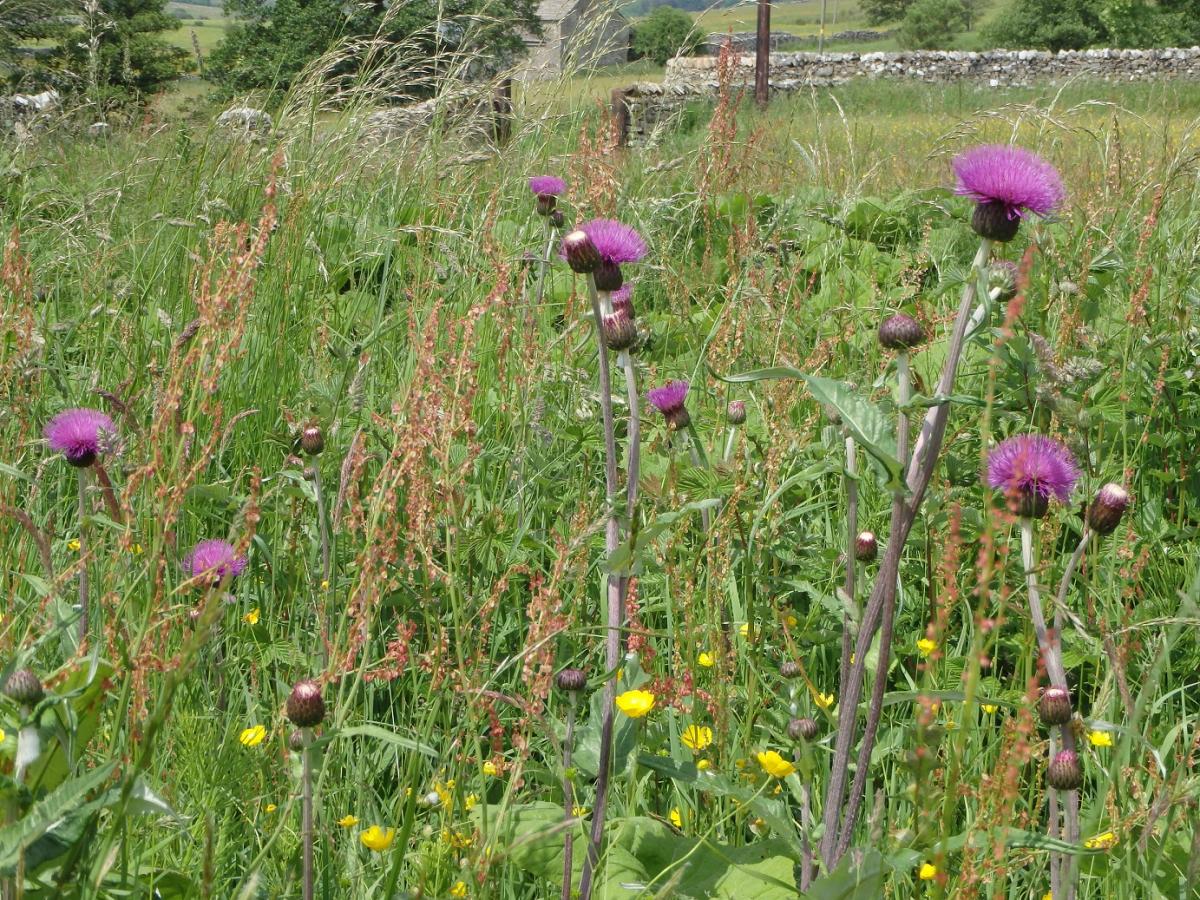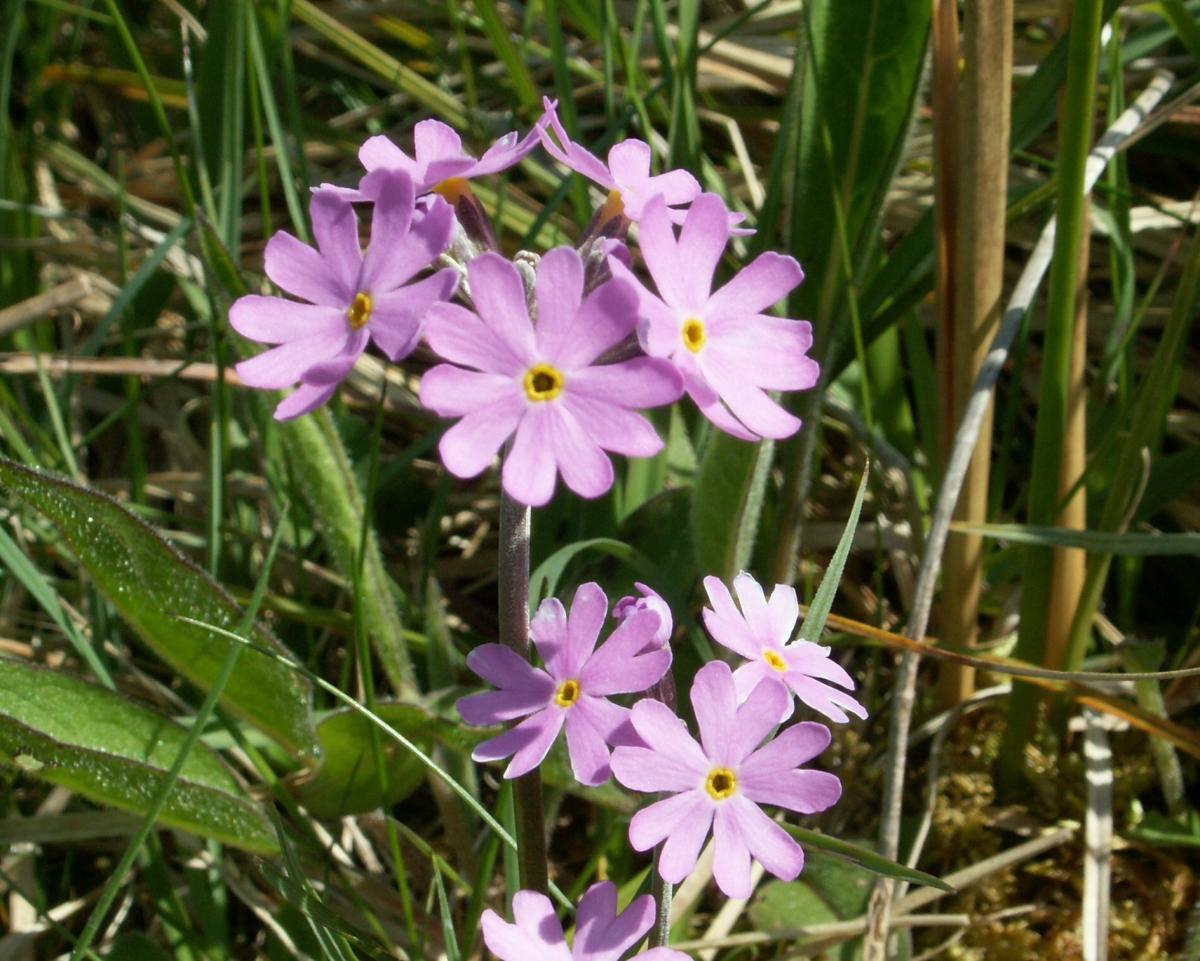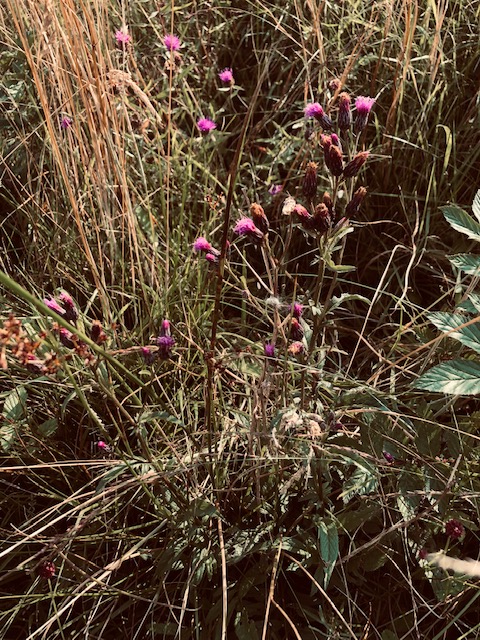 Delivered by Yorkshire Dales Millennium Trust in partnership with Forest of Bowland National Landscape, this 14-month project engaged local volunteers and Kew Millennium Seed Bank to propagate and "foster" sustainably collected seed into plug plants.
Delivered by Yorkshire Dales Millennium Trust in partnership with Forest of Bowland National Landscape, this 14-month project engaged local volunteers and Kew Millennium Seed Bank to propagate and "foster" sustainably collected seed into plug plants.
The four key species were bird's-eye primrose Primula farinosa, globe flower Trolllius europaeus, melancholy thistle Cirsium heterophyllum and saw-wort Serratula tinctoria.
These species were once widespread in our meadows, road verges or stream and river banks, but have now declined into scattered, isolated populations around the area. In particular bird's eye primrose is listed as a nationally scarce species, is a Lancashire BAP target species and in 2012 cited as decreasing globally on the IUCN Red List.
Using data provided by the Lancashire Environmental Records Network (LERN) team, surveying and soil testing potential sites, suitable locations for seed collection and re-establishing populations were found.
Kew Millennium Seed Bank at Wakehurst Place in Sussex was commissioned to produce approximately 1000 plug plants from locally sourced seed of the four key species for the project.
The work focused mainly in the species rich hay meadows and pastures in the area, but also included some special verges. Engaging volunteers, landowners, community groups and Kew Millennium Seed Bank to grow local, sustainably sourced seed into plug plants, the project has successfully re-introduced 1100 plug plants of three scarce plant species at eight different sites across the National Landscape.
 The field scale hay meadow restoration work carried out through the Hay Time project continued, with 13 ha of meadows having restoration or enhancement work over the summer and autumn of 2019.
The field scale hay meadow restoration work carried out through the Hay Time project continued, with 13 ha of meadows having restoration or enhancement work over the summer and autumn of 2019.
The project has worked successfully with land owners, community groups and with schools. Over the course of the project our public events attracted over 80 people, sharing seed collection and propagation knowledge with landowners, both within and outside Forest of Bowland National Landscape, and educating local school children on the importance of wild flowers.
We visited the fascinating seed bank at Kew MSB and discovered the journey our seed took through the various drying, testing and propagating processes.
We also worked with an entomologist to find a rare fly species Chiastocheta, which rely on globe flower for the adult portion of their life cycle.
 Hay Time Rescue was a project funded jointly by Lancashire Environmental Fund, Yorkshire Dales Millennium Trust and Forest of Bowland National Landscape. The full report is available here.
Hay Time Rescue was a project funded jointly by Lancashire Environmental Fund, Yorkshire Dales Millennium Trust and Forest of Bowland National Landscape. The full report is available here.
Hay Time will be continuing in 2020 with further field scale restoration, and more rare plug plants to place this spring.
For further information contact Carol Edmondson 01200 448000, or email carol.edmondson@lancashire.gov.uk.
